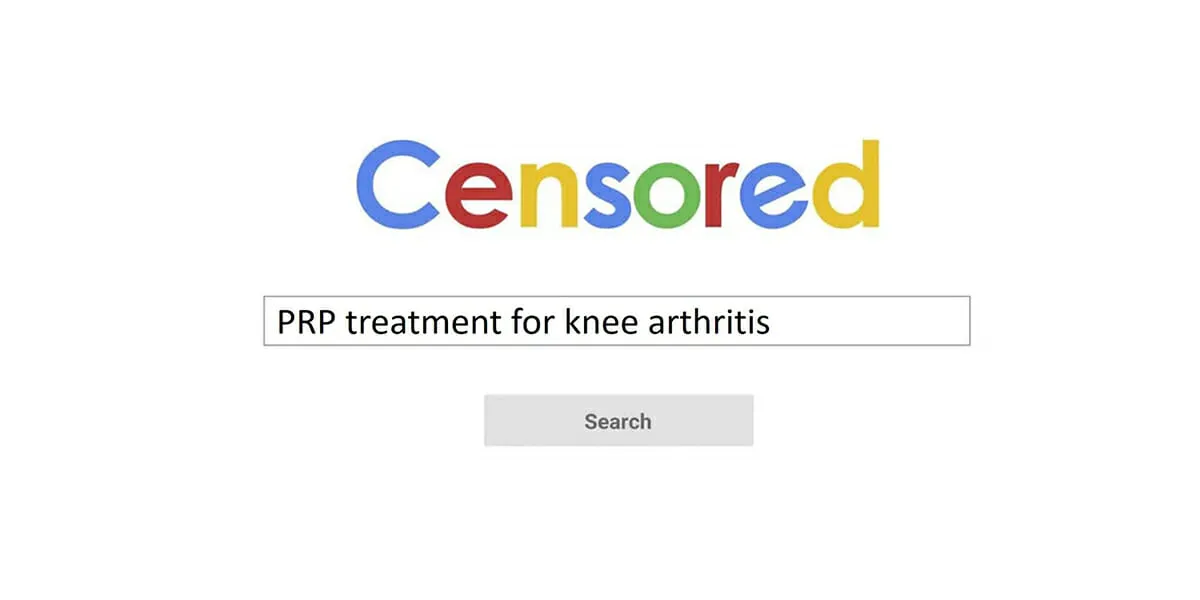What’s the controversy?
Although the policy against fraudulent medicines was pre-existing, Google’s take on whether PRP and stem cell therapy fell into that category was undetermined… until recently. In most parts of the world, Google restricts the use of prescription drug terms in landing pages, ad copy and AdWords. If this is the code for safely tested prescription drugs, you can imagine that anything less than regulated will only have even tighter rules. Regardless of legality, Google doesn’t allow adverts to be placed for herbal and dietary supplements, some forms of Homeopathy and products with names that would allow them to be easily confused with an unapproved substance.
Read Google’s official statement on the policy here.
Essentially, in an attempt to limit medical ‘fake news’ and other questionable practices, Google recently announced they would be shutting down all stem cell and PRP advertising through their AdWords platform. The search giant will take ‘immediate action’ on violating adverts, and the consequences range from simply removing the ads to suspending offending accounts altogether. The move was made in a bid to cut down on untested treatments being advertised to desperate and seriously ill patients, often without medical or any scientific basis. PRP, platelet-rich plasma, and stem cell therapies are still considered ‘alternative’ and ‘untested’, due to the lack of clinical evidence. These types of therapies are used to treat a magnitude of conditions ranging from tennis elbow to different types of cancer.
Google AdWords can be used to reach and generate new leads for clinics and for those using pay-per-click marketing, the results speak for themselves.
How will this affect my practice?
The ban on these ads does not discriminate; the ‘good’ companies out there with sound intentions will still be as affected as those selling dodgy medication. This means those in the right will lose out on any new leads which would have been generated by Google ads.
Practices are forced to avoid the direct-to-consumer path which will inevitably limit patient choice and understanding of what treatments are available to them. In turn, this could increase the cost to the state for traditional healthcare as patients accept this as their only path to treatment.
“It puts Google in the position of being a quasi regulator, taking on quite a significant amount of jurisdiction. They’re painting the industry with a broad brush and companies with legitimate arguments are going to be collateral damage.” - Andy Ittleman, Attorney at Fuerst Ittleman PL
Generally, the reaction is mixed, with many authoritative figures saying the move undermines the development of legitimate new therapies.
Could this change?
For the time being, it’s unlikely. Although Google continues dialogue with the Food and Drug Administration (FDA) to ensure medication adverts are compliant with rules, the blanket policy hasn’t gone without disagreement. Inevitably as clinical evidence is recorded over time, we should see a shift in policy for healthcare marketing.
So, what’s the workaround solution?
Well, Facebook doesn’t prohibit this type of advertising (to their two billion monthly users, no less)… yet.
Get in touch with our healthcare marketing agency today to develop your marketing plan.
